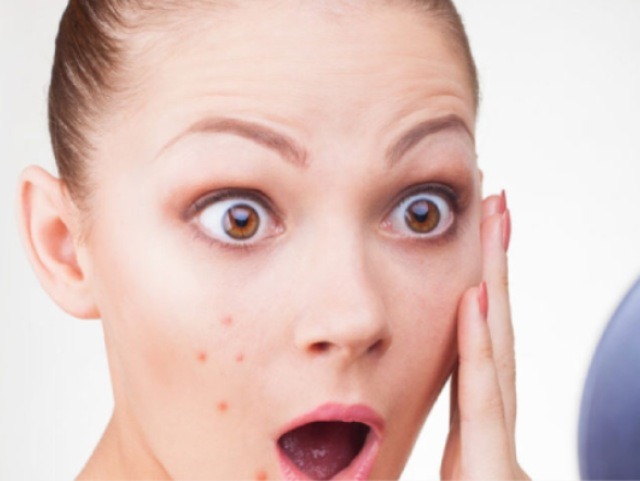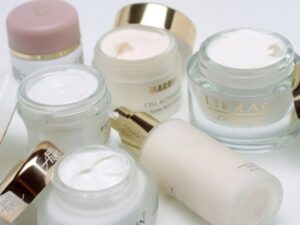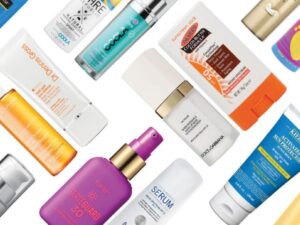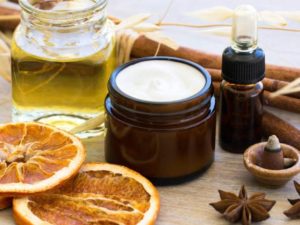Every Dermatologist knows that acne can be stubborn, is very likely to recur, and needs prolonged treatment and care. Most patients do not understand this though. Most of the dumb “beauty tips” I have heard online are also related to pimple management. Read on to understand the 20 most common causes behind acne that refuses to tame..
1) It’s all about hormones!
I have met women in their fifties who tell me that they have been waiting to outgrow their “pimply phase” for the last three decades! Hereditary factors and hormonal influence is the most common cause for persistent and stubborn acne that refuse to tame over the years. This does not necessarily mean you have an imbalance that needs to be sorted out using medication. In most cases, this simply means that your oil glands are extra sensitive to your monthly hormonal cycle. Since women go through monthly cycles along with well-defined life changes that feature major hormonal shifts, they are likelier than men to develop adult onset acne. Most women with acne complain of a flare up around the time of their period. Teenagers who abuse birth control pills and the emergency contraceptive pill, may also experience acne as a side effect. Puberty, pregnancy and the peri-menopausal years are particularly difficult. If you suffer from irregular periods or ovarian cysts, then you’re very likely to have stubborn acne as well.
Chronic stress, lack of sleep, irregular eating habits and excess sugar and carbs in your diet can also mess up your body’s hormonal harmony.
Yoga, meditation, weight control, diet control and the expert advice of an endocrinologist are all just as important as the dermatologist’s prescription.
2) Stress
Stress does not just refer to emotional or psychological stress. Chronic illness or lack of sleep can cause physical stress. Our body releases hormones like adrenaline, cortisol and thyroxine which help our mind and body to cope with the crisis. Our body learns to resist insulin, leading to higher blood sugar levels, to increase energy and alertness. However when our body is in a chronic state of stress, these very hormones start to wreck havoc on our system. Acne is just one of the side effects of stress on our body.
3) Diet
Excess sugar, starch and dairy intake can lead to acne. This is especially true for women who are already overweight or suffer from hormonal disorders like ovarian cysts. On the other hand, increasing your intake of probiotics, yoghurt, carrots, pumpkin, fish, buttermilk, flaxseed and spearmint tea can be helpful in long term acne management. Oral Zinc, Vitamin A, Kiwi seed extract and guggul supplements are sometimes prescribed by dermatologists in patients who cannot tolerate oral antibiotics.
4) Skin picking
Most women seem to believe that popping a pimple will help it dry out faster. This is not true because you are irritating an area which is already inflamed. This is also counter-productive, because picking on your zits will leave your skin with blemishes and scars.
5) Over-washing
This is a common misconception about acne. People believe that washing their face several times a day is all that’s needed to keep acne under control. Over-washing your face will only aggravate your oil glands into producing more oil. It will water-log your pores and worsen the inflammation.
6) Wrong choice in skin care
Most sunscreens, especially high SPF formulations, can in fact cause acne. Cream based moisturizers which contain fragrance, parabens, vegetable oils, squalene etc can also create whiteheads and acne. Toners are over-rated and daily use of scrubs can damage your skin by causing micro-abrasions. Cream, fluid and oil-based make up can also lead to acne. As can most low-grade cosmetic skin care products. Everybody needs sunscreen and moisturizer, even those who suffer from acne. But you must choose gel or water-based formulations which are non-comedogenic. Consult a dermatologist for advice.
7) Using baby oil to remove make up
This is a common mistake made by most women. Dancers and performing artists often use several layers of heavy foundation, which can only be removed using baby oil. If you belong to this category, you must ensure a second, more thorough wash, using a medicated anti-acne face wash.
8) Getting facials and steaming done to treat acne
“Anti-Acne facial” is an oxymoron. The steam, scrub, massage and comedone squeezing done during a facial can often trigger fresh acne. Anti-acne facials usually involve the use of benzoyl peroxide containing scrubs, tea-free oil containing masks and perhaps a salicylic acid based chemical peel as well. This must ideally be performed by a trained dermatologist and not an aesthetician. Every Dermatologist has met harrowed brides who have suffered a fresh bout of acne just days before their wedding, following an ill-advised facial!
9) Your hair
Yes. How you wear your hair and the products you use can determine the state of your skin. Fringe hairstyle, dirty hair, hair mousses, waxes or pomades, hair oils, hair styling products that contain oil, silicone or plasticizers, and certain hair conditioners can leave acne on your forehead and nose. Do not leave hair oil on your scalp for several hours a day.
10) Applying body lotion on face
Bad idea. A lot of women use body lotion on their face in the interest of saving some money. However, body lotions are generally thicker and greasier. They are designed to cover large parts of your body, where the skin is dry and not as sensitive as the facial skin. Using them on your face can cause irritation, acne, open pores and darkening of facial skin.
11) Your work-out regime
Not showering or washing your face after a sweaty work-out can lead to acne. Whey protein containing supplements work by increasing the blood levels of hormone Testosterone in both men and women. They can cause acne and hair fall. If you’re using anabolic steroids to pump your muscles, then you may suffer from severe acne and hair thinning as a consequence.
12) Poor facial hygiene
This seems to be fairly typical for most teenagers. Using old or dirty make-up applicators, wearing make up for more than 8 hours a day, going to sleep with make up on, working out with make-up, covering your face with untidy or unwashed scarves, and using dirty headbands – These are poor habits which could lead to resistant acne. Innocent looking objects like a dirty helmet or dirty pillow covers could also cause facial acne.
13) Constipation
There seems to be a link between chronic constipation, excess weight, excess dietary sugar, lack of exercise, yeast overgrowth in the gut, lack of dietary fibre and hormonal imbalances. Oral intake of probiotics and maintaining regular bowel movement can also help in clearing up those zits.
14) Sweat and Friction
Trunkal acne (pimples on the shoulders and back) is often linked to sweat, humidity and friction from heavy backpacks. Have cool showers twice a day and apply talcum powder or cornstarch on your back to minimize hair follicle irritation from friction.
15) Dirty cell phones and dirty hands
Pimples which seem to only appear on one side of your face can be linked to holding your cell phone on that side of your face over long telephonic chats. The surface of your cell phone will always remain dirty. Touching your face with dirty hands could also cause pimples. Invest in a hands-free headset, and keep your hands off your face.
16) Vitamin B12 Injections
Some studies have shown that excess Vitamin B12, when taken in the form of oral supplements or injections, can cause acne by altering the gene expression of the skin bacteria that causes acne. Some other studies have shown the exact opposite – indicating that Vitamin B12 has anti-inflammatory properties. At this point, we do not have conclusive evidence about the link between acne and Vitamin B12; but physicians and dermatologists have been observing the phenomena in their personal practice.
17) Irritants
Using irritants like lemon juice, garlic and toothpaste are generally not very helpful and sometimes counter-productive. Do not use milk cream or vegetable oils on your face if you suffer from acne.
18) Epilation
The oil glands of the skin are attached to the hair follicle. This is why hair follicle irritation is closely linked to the formation of acne. Waxing, threading, shaving, and even laser hair removal treatments could trigger acne or acne-like rashes.
19) Drugs that cause acne
Birth control pills, oral steroids, anti-epilepsy medication, certain anti-depressants and anti-tuberculosis medication can also trigger acne. The acne will continue to relapse as long as you continue to take these medications.
20) Long term use of antibiotics itself
Dermatologists treat Grade III acne and cystic acne using oral antibiotics. They are generally prescribed for 4-12 weeks. Some doctors may even prescribe antibiotics for 6 months to a year. However, long term use of antibiotics can cause a condition known as ‘Gram Negative Folliculitis’. This is an acne-like eruption on the face and body caused by gram negative bacteria, which grow in abundance when the gram positive bacteria on the skin are completely eliminated by oral antibiotics.
In most men and women, acne becomes a chronic and recurring problem. Effective and long-term treatment requires time, patience and all-round efforts by the patient as well as their doctors.




